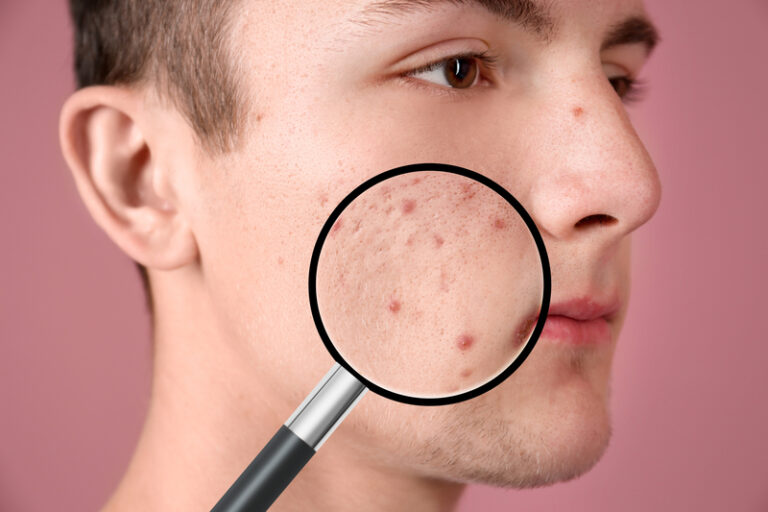Though acne is not life-threatening, it is a health condition that gets displayed to the world, and consequently can be very distressing. Acne can be a normal and transient phenomenon connected to shifts in hormone levels during puberty. But acne that lingers into adulthood and beyond is a symptom that can be persistent and hard to treat. It can also point to more serious, underlying health issues.
What are some of the root causes of acne? In Chinese medicine, we view acne as related to bacterial infections that lead to skin-level inflammation, visibly seen as red or pink discoloration and often pus. We advise patients with acne to remove foods that contribute to inflammation, specifically dairy, sugar, alcohol, peanuts, wheat, spicy food, chicken, shellfish, and greasy food. It is interesting to note that many of these are also common food allergens.
While removing these foods may help, many adults with chronic acne will need to work more deeply on gut repair and/or hormonal balance. Facial acne is more indicative of hormonal imbalances, whereas acne on the chest, back and shoulders is often due to the presence of bacteria in the bloodstream from eroding gut health.
The reason abnormal bacterial loads make their way into the bloodstream is usually due to intestinal hyper-permeability, or “leaky gut”. This occurs when the spaces between the cells that line the small intestine loosen too much so that microbes normally only present within the digestive tract enter the blood. There are many causes of leaky gut, including exposure to antibiotics, other medications, and chemicals such as glyphosate in our food system.
Hormonal changes contribute substantially to acne. Any woman can tell you that when she is excessively stressed, often the first place it shows up is through menstrual, premenstrual, and even menopausal issues, including emotional lability and acne. Elevated stress levels raise blood sugars, which contribute to the proliferation of bacteria or other microbes such as fungi circulating in the blood. The hormonal imbalance polycystic ovarian syndrome or PCOS includes symptoms of irregular menstrual periods and acne. PCOS is caused by chronically elevated blood sugars, which cause excess levels of insulin, which then trigger the ovaries to produce too many androgens, or male hormones. Important also to note regarding hormonal imbalance is the critical detoxifying role the liver plays in clearing excess hormones from the body. Good liver health is essential!
Finally, there are numerous scientific studies connecting acne with nutritional deficiencies, including zinc, vitamin A and E, B vitamins, selenium, and copper. Supplementing with whole food forms of these nutrients can be an effective way to help reduce acne.
The presence of acne can be a useful barometer of measuring how well someone is doing in bringing their body back to a state of improved health. At Vital Health, we accomplish this through individually tailored diet changes, supplements and acupuncture to rebalance hormones, reduce stress, boost your liver and heal your leaky gut.
©2023 Darcy Greenwald, M.S.O.M., L.Ac. and Vital Health







